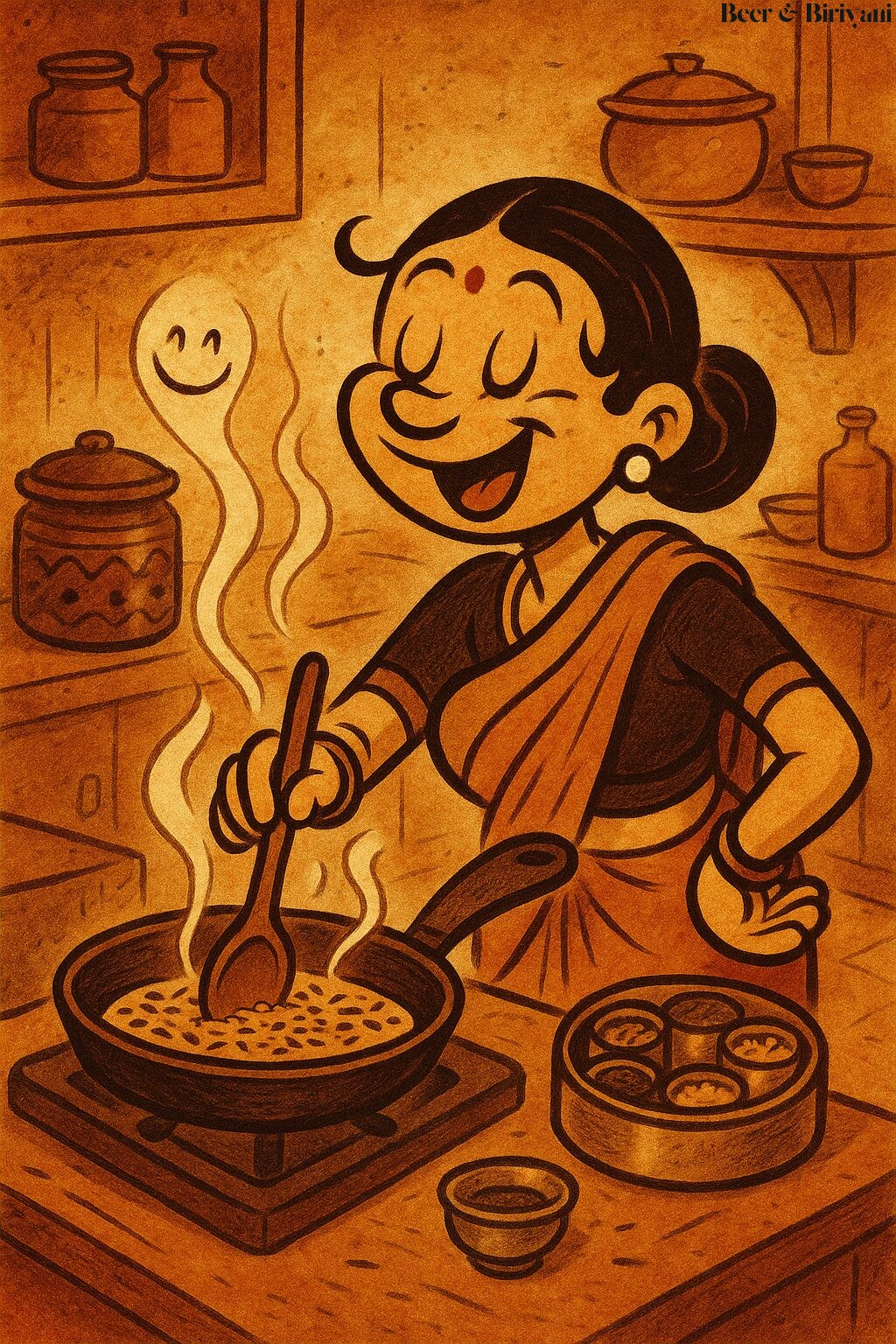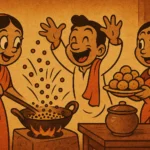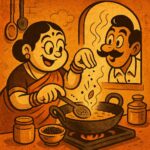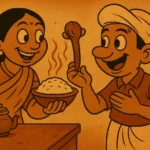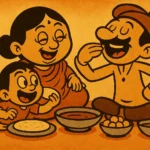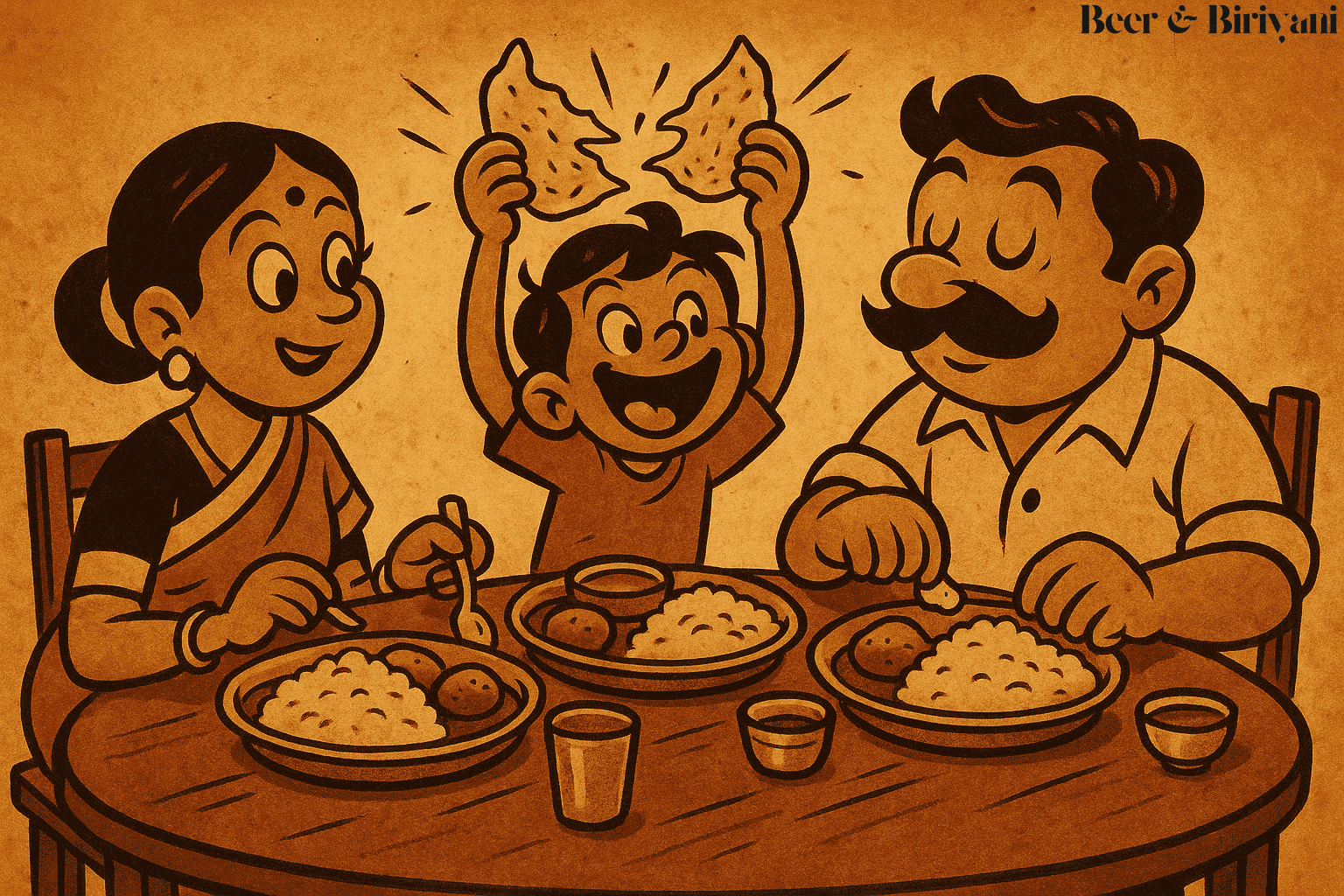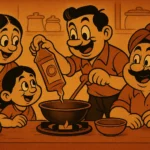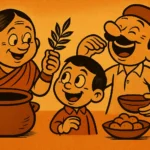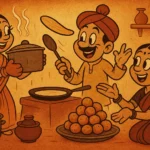Some ingredients in the kitchen demand attention. They arrive with color, smell, and drama—cloves that punch, chilies that shout, mustard seeds that pop like popcorn under a spotlight. But then there’s jeera. Cumin, for the government records. But to me, it’s just jeera. The spice that never interrupts but always knows what’s going on. The kind of quiet presence that tells you: “I’ve been here before. I’ve seen things. I’ll take care of it.”
In our Mumbai kitchen, the day started with the smell of tadka—jeera meeting hot ghee. Not sizzling, not screaming. Just a low murmur, a warm exhale. It was like watching a senior employee arrive at work before everyone else and open the shutters. Calm, dependable, utterly essential. And even now, 9,000 miles away in Austin, when I toss a few seeds into oil and wait for them to bloom, the scent takes me home faster than any plane ticket ever could.
Jeera: The Foundation, Not the Flash
Let’s be honest—no one dreams of cumin. You don’t salivate thinking, “I hope this dal has extra jeera.” But if it’s missing, something feels… wrong. Off-balance. Unanchored. That’s because jeera isn’t about flavor. It’s about foundation. It’s the base note, the memory, the invisible scaffolding on which the entire dish rests.
Jeera shows up in everything: dal, subzi, chaas, pulao, jeera aloo, even dessert-adjacent things like mathri and namak para. It’s in our spice boxes and medicine cabinets. It’s the brown speck you find in your first spoonful and go, “Ah, someone did this right.”
From Bellyaches to Belief
Growing up, jeera had two jobs: flavoring food and fixing stomachs. My mom would toast a handful, crush it roughly, and stir it into hot water with a pinch of salt—jeera paani. Magical. Instantly adult. If you were allowed to drink that, it meant you were officially unwell enough to skip school. Later, we’d graduate to jeera-goli—those tangy digestive tablets from local pharmacies, as addictive as candy but with the moral authority of medicine.
It wasn’t until I moved out that I realized the full emotional weight of cumin. It’s not just a spice. It’s a signal. A whisper to your gut: “Settle down. You’re safe here.” It’s why Indian kitchens, no matter how new or far-flung, smell like home the moment jeera hits hot oil.
A Global Citizen with Deep Roots
Jeera is ancient show it was being used in India since the second millennium BCE. It’s been traded across continents, used in Egyptian mummification rituals, mentioned in the Bible, and crushed into spice mixes from Morocco to Mexico. But in the Indian kitchen, it’s never exotic. It’s familiar, familial, and ever-present.
My grandmother believed jeera had a gender—it was masculine, she insisted, because of its heat and its strength. But it was also forgiving. You could over-toast it, under-toast it, powder it to dust or leave it whole. It would still show up. Still work. Still fix things.
The Austin Jeera Crisis
One day, a very enthusiastic friend gifted me a fancy spice rack. Glass jars, labeled in curly fonts. Cumin came in powder form, pale and polite. I used it once and realized—it wasn’t jeera. It was cumin, yes, but it didn’t know the stories. It hadn’t lived the life. It didn’t know how to behave in ghee or ride the heat wave of mustard seeds. I went straight to the Indian store, bought a 500g bag of whole jeera, and restored order to my kitchen.
The Smell That Anchors Memory
There’s something about the moment jeera hits oil. A few seconds of sizzle, a puff of smoke, and boom—your brain is flooded with associations. School lunchboxes. Rainy evening khichdi. Hospital stays followed by jeera rice. Temple prasad. Late-night chaas. It’s not just scent. It’s sense. The kind that ties you to people and places without needing explanation.
Last Spice Standing
If my kitchen ever caught fire (touch wood), I’d probably run back in for two things: the family recipe notebook and the jeera jar. Because you can cook without garlic. You can survive without garam masala. But without jeera? You’re just making food, not meals. You’re just putting things together, not telling a story.
And yes, I’ve tried the fancier spices. Smoked paprika, sumac, za’atar. They’re great. But none of them know me like jeera does. None of them have stood quietly in the background of every major meal of my life. None of them have that quiet crunch, that gentle bitterness, that impossible-to-replicate familiarity.
So here’s to jeera. The humble seed that starts the dish, finishes the digestion, and never asks for attention. The spice that remembers more than you do. The one that, if you listen closely, is always saying, “I’ve got this.”
Born in Mumbai, now stir-frying feelings in Texas. Writes about food, memory, and the messy magic in between — mostly to stay hungry, sometimes just to stay sane.

